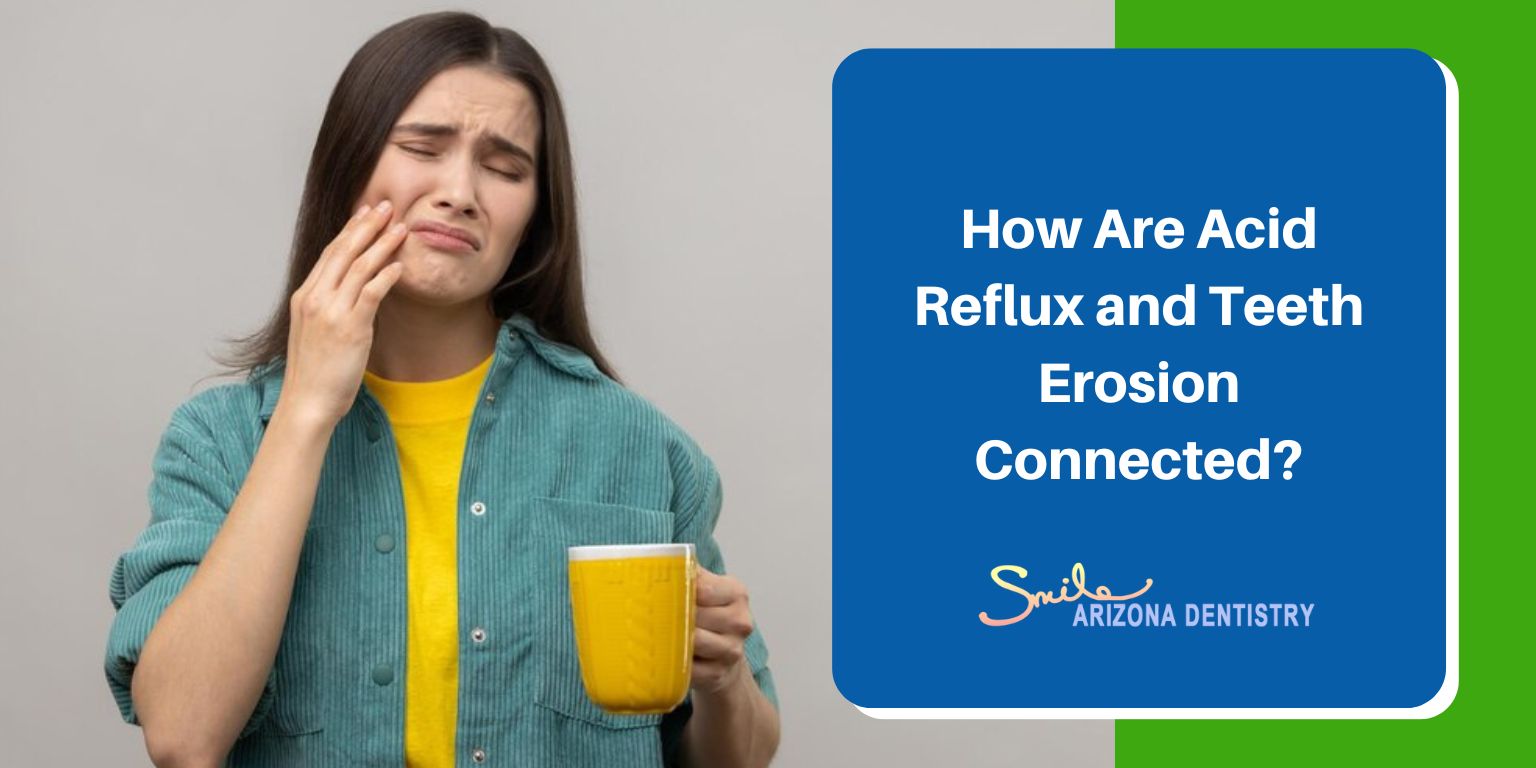


Ever had that burning sensation in your chest after a heavy meal? If yes, you might be familiar with acid reflux – a common digestive issue that occurs when stomach acid flows back into the esophagus. While the discomfort it brings is no stranger to many, what often goes unnoticed is its subtle yet significant connection to tooth erosion. Statistical data shows that over 20% of the adult U.S. population often complains of gastroesophageal reflux disease, more commonly known as acid reflux.
If one experiences occasional acid reflux, it can be easily managed by using over-the-counter medications and simple remedies. However, if the reflux is more persistent, it can lead to severe health problems, such as tooth erosion. In this blog, we'll discuss how acid reflux can cause tooth erosion and the steps for prevention. We'll also cover diagnosing acid reflux and when to seek clinical attention.
Acid reflux is a digestive condition where stomach acid flows backward into the esophagus, the tube that connects your throat to your stomach. This backward movement of stomach acid can lead to various symptoms and discomfort.
The most common symptoms of acid reflux are:
Certain foods and lifestyle factors may contribute to acid reflux. Food items that are fried, fatty, spicy, citrus based, chocolate covered, or filled with caffeine can trigger symptoms. In addition, lying down or bending over after a meal, being overweight, and smoking may increase the risk of acid reflux. Managing acid reflux involves dietary adjustments, lifestyle changes, and, in some cases, medications.
Tooth erosion occurs when the tough outer layer of your teeth, called enamel, starts wearing off. As this protective shield diminishes, the softer layers underneath, like dentin, become exposed. This exposure makes your teeth more prone to harm from bacteria and acid, potentially leading to problems like tooth decay.
You might notice signs of tooth erosion through symptoms like:
The main cause of tooth erosion is due to acids gradually breaking down your enamel. This acid attack weakens the outer layer, leaving your teeth less protected and more susceptible to dental issues. Taking care of your oral health and addressing symptoms early can help prevent further damage and maintain a healthy, bright smile.
You might have already guessed it, but the acid involved in acid reflux could be causing tooth erosion. When someone has acid reflux, or GERD, stomach acids can travel up into the esophagus and sometimes even reach the mouth. If these acids make their way into your mouth, they can start wearing away the enamel on the inside and chewing surfaces of your teeth.
If acid reflux, or GERD, isn't addressed, these acids can keep chipping away at the enamel until they reach the dentin, the softer layer beneath. When this happens, it opens the door to potential tooth decay, gum disease, and even tooth loss. Managing acid reflux helps your stomach and protects your teeth from these problems.
Gain control over acid reflux by making changes in what you eat, losing weight if needed, and staying hydrated. But the most important thing you can do for your teeth is to keep up with good dental habits. Here's how:
If you already have tooth erosion, your dentist might need to do more to fix it:
If you experience acid reflux symptoms two or more times a week, or if your dentist notices changes in your tooth enamel that could be caused by acid reflux, it's time to see your doctor. They may order tests to confirm the diagnosis and check for other issues. These tests can include:
Are you concerned about acid reflux and tooth erosion? If yes, then visit Smile Arizona Dentistry. Our goal is to provide personalized treatments to meet your specific dental needs. Dr. Beth Vander Schaaf, is highly experienced in cosmetic dentistry procedures, helping you achieve the beautiful and healthy smile you seek. Contact us today to learn more about our services.